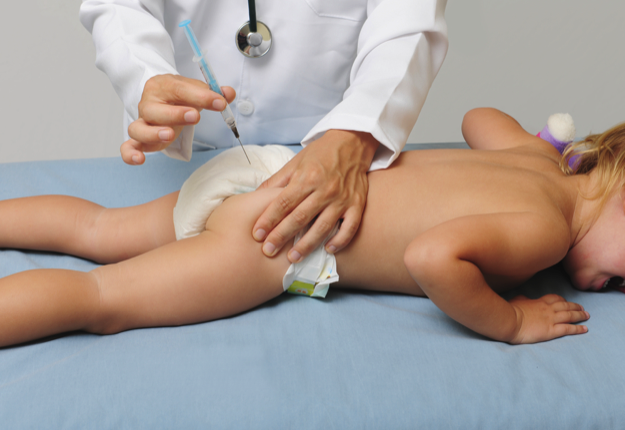As we form our personal opinions whether we should or shouldn’t vaccinate our children – are we forgetting about those children whose parents aren’t informed and who don’t have a choice? And is that where the risk in our communities lies?
As parent’s we know that dreaded feeling of taking our little people to the doctors for their vaccinations. We anticipate the tears, the shock of pain, and watching their bodies react with hard, hot, red mounds around the injection site.
I can remember my little boy screaming so much after getting his ‘shots’ that he started hyperventilating, and the only way I could calm him was pointing out the cars driving past the doctor’s waiting room. And then a lollipop in the car as we drove home. I think I may have needed one as well, or something stronger if it hadn’t been 10am in the morning.
Not that long ago, we didn’t question it; we didn’t believe there was a choice. But today, there is a growing debate between those who think we should vaccinate and those who think we shouldn’t, with those on opposing sides vehemently and vocally disagreeing with each other’s stance.
We see the tragic deaths of babies like Riley Hughes, who contracted pertussis (or whooping cough) before he was old enough to receive his immunisation and passed away from complications before his little body had been armed with the weapons to protect him.
We see an outbreak of whooping cough in communities such as Kilcoy in Queensland where 16 cases of whooping cough were confirmed at Kilcoy State School in the last week alone, bringing the total to 86 cases diagnosed already this year. Infectious diseases expert Professor Matthew Cooper, a professorial research fellow at the University of Queensland’s Institute for Molecular Bioscience, attributed the outbreak to an anti-vaccination trend. “Unfortunately the more people who choose not to immunise the more likely it is we’ll get outbreaks.”
And we fear that these insidious diseases are starting to creep back slowly into our society, simply because those that believe there is a choice have chosen to use it.
Yet, we hear talk of the links between the autism spectrum and vaccinations and we worry that maybe instead of protecting our babies, we’re harming them instead.
The vaccination debate – whether to vaccinate or not to vaccinate, appears to be polarising our communities. There is a groundswell of moral outrage fuelled through the Internet and social media.
But amongst all this outrage and emotion, are we missing the point? Are there immunisation gaps in our communities caused by a percentage of infants who because of their demographic or circumstance, have never had a choice, nor the opportunity to be immunised?
Vaccine expert, Associate Professor Julie Leask from the University of Sydney, believes so.
Writing in the journal Public Health Research & Practice, Professor Leask says that only about 2% of parents are registered as ‘conscientious objectors’ yet, still about half of these will give their children some vaccines.
However there are approximately 8% of children who aren’t immunised and this is not because of their personal stance, but rather because they were born overseas, are from a disadvantaged background or are in out-of-home care. These children have not been immunised because they have not had the opportunity to be. They have been missed. They have fallen through the gap, and by doing so have created an immunisation gap.
Rather than focusing on the small minority of conscientious objectors, the focus needs to be on how we can target those children who are missing out, and on finding these kids, who don’t have the choice regarding whether they receive a vaccine or not. That’s where our energy should go – not on trying to undermine those whose opinions we don’t agree with.
But one thing is clear – as parents, we now need to arm ourselves with information and knowledge and make a conscious, informed and personal decision for our children. Rather than just accepting, or grasping onto random facts and figures, we are educating ourselves, understanding the consequences of our decision – for our children and for the communities we live in.
This should always have been the case, yet it hasn’t been so. And we have the vaccination debate to thank for that – because informed choice is better than not making a choice. Or not having one.




















11:21 am
4:21 pm
10:07 pm
8:28 pm
10:01 pm
8:40 pm
5:05 pm
11:13 am
10:57 pm
10:35 pm
10:58 am
10:27 am
5:45 pm
9:58 pm
8:20 pm
5:17 am
6:19 pm
1:35 pm
9:23 pm
7:41 pm
- 1
- 2
- 3
- »
Post a commentTo post a review/comment please join us or login so we can allocate your points.